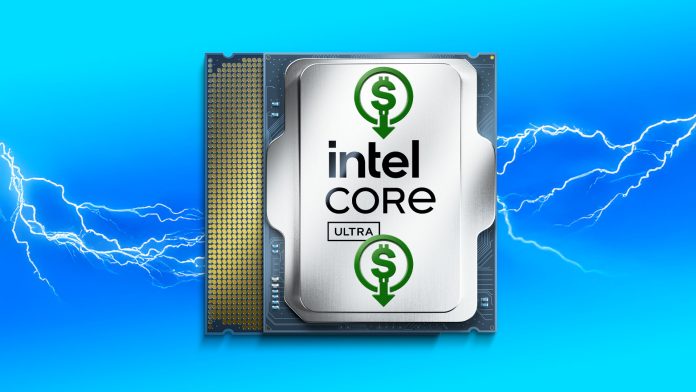As an Amazon Associate, we earn from qualifying purchases and other affiliate schemes. Learn more.

Intel has just been dealt another financial blow, as the gaming CPU maker’s credit rating with Fitch Ratings has just been downgraded. The US credit agency, which is one of three rating organizations recognized by the US Securities and Exchange Commission, says that Intel’s “rating outlook is negative,” with weak credit metrics, an unclear AI strategy, challenging demand, and competition from AMD cited as factors.
After downgrading Intel from a BBB+ rating to BBB, Fitch pointed out that “Intel faces stronger competition from Advanced Micro Devices” in PCs, while also pointing out that market share had been eroded in “high-end desktop processors to Advanced Micro Devices” – a market where Intel has taken a battering lately. Our best gaming CPU buying guide is currently dominated by AMD chips, partly because, as we found in our Intel Core Ultra 7 265K review, the latest Intel CPUs are actually slower than the company’s previous chips in games.
As we saw in the Steam Survey recently, Intel CPU market share among gamers has dropped from 76.84% to 60.27% over the last five years, and while Intel is still the dominant company, that’s an alarming drop. Gaming is only a small part of Intel’s chip business, though, and Fitch points out that Intel is retaining “strong market positions in PCs and traditional enterprise servers,” which are bolstering the company’s credit profile.
Fitch says that Intel will need to increase PC shipments and provide “solid execution on product and manufacturing technology roadmaps” in order to improve its position, while also significantly reducing its debts. While the credit rating agency acknowledges that the current volatility in trade with the US from tariffs increases uncertainty in the market, it also says that “the main concern is the impact on marginal demand rather than chip makers’ ability to pass through tariffs. For Intel, this uncertainty is clouding a weaker-than-anticipated recovery from an elongated inventory correction and PC refresh cycle.”
Another area that’s come in for scrutiny is AI, where Fitch says “Intel’s AI strategy remains unclear and depends on a systems and software approach, an area where the company has traditionally been weak or absent.” While the company’s latest Arrow Lake CPUs do indeed have a neural processing unit (NPU), it’s notably underpowered compared to the NPUs found in the latest AMD AI laptop chips. For example, the AMD Ryzen AI 9 HX 370’s NPU can process up to 50 TOPS, with an extra 30 TOPS from the integrated GPU. Comparatively, the Intel Core Ultra 9 285K’s NPU peaks at 13 TOPS, with an overall 36 TOPS from the whole chip.
It looks as though Intel will need to become a lean, mean fighting machine in a short space of time if it wants to recover its credit rating, while also making sure its new products absolutely deliver the goods in terms of technology, features, and performance, and in good time as well. It’s potentially looking good for gamers if the rumors about a new Intel 3D V-cache equivalent tech are true.
In the meantime, check out our guide to buying the best gaming motherboard if you’re thinking of upgrading your rig, while our best gaming PC guide takes you through all our favorite desktop machines you can buy right now.
You can also follow us on Google News for daily PC games news, reviews, and guides. We also have a vibrant community Discord server, where you can chat about this story with members of the team and fellow readers.
